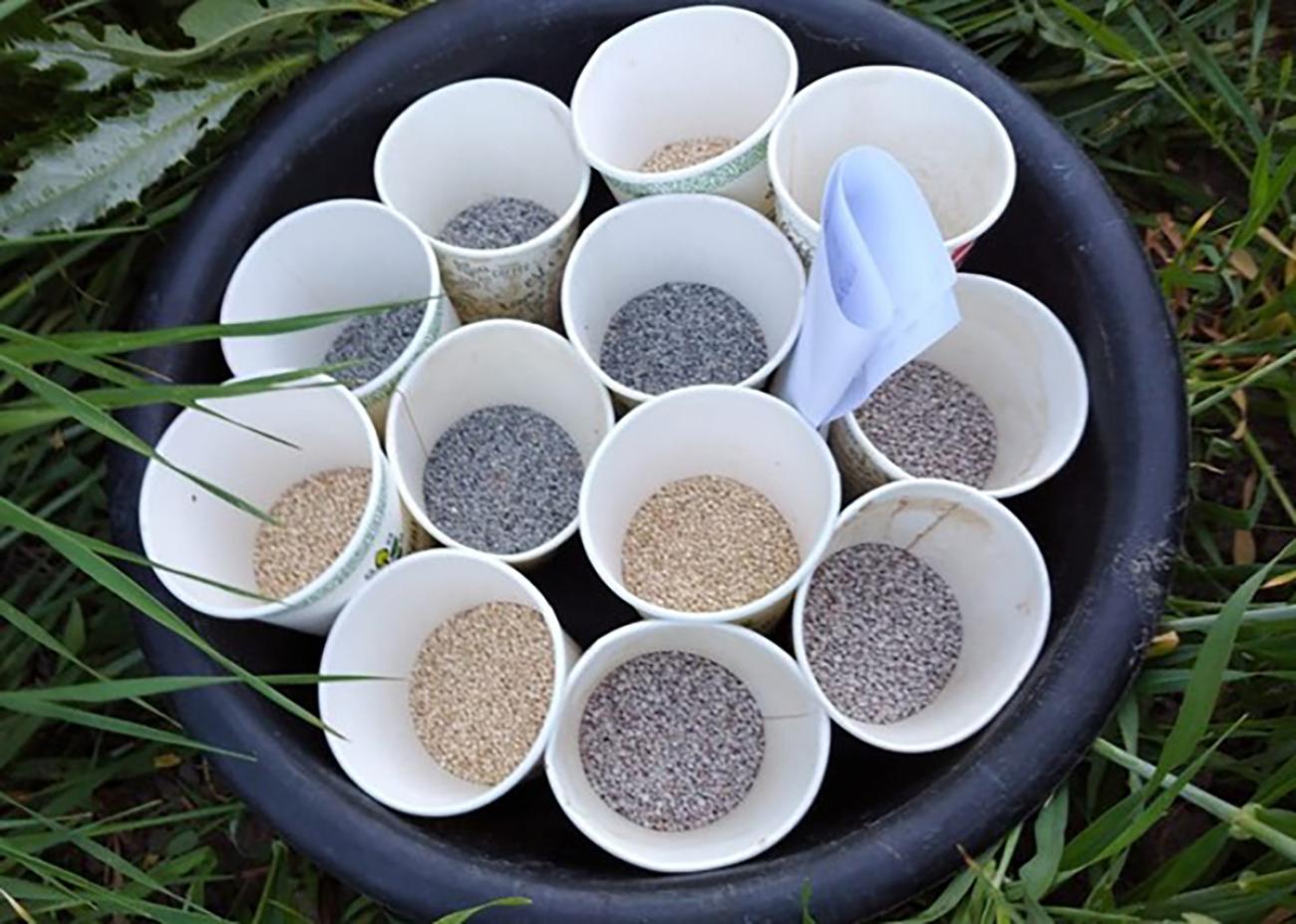FAO helps Armenia improve seed systems

Four varieties of quinoa seeds were imported to Armenia to be tested as a production alternative.
The Food and Agriculture Organization of the UN (FAO) is implementing a regional project in four countries including Armenia, to enhance climate resilience in agriculture.
The project aims to improve seed systems in the selected countries and build national competence to ensure a proper seed supply, improving and developing seed certification systems for quality control.
“Activities address the introduction and testing of new varieties and revitalizing local varieties to strengthen the availability of high quality, resistant seeds to empower climate resilience of the rural population,” said Gayane Nasoyan, Assistant FAO Representative in Armenia “In this regard, the project marks the first step towards transforming food systems in the region for more sustainability, enhanced food security, climate change adaptation measures in agriculture sector and improved competitiveness.”
The other countries include Kyrgyzstan, North Macedonia, and Tajikistan, who all face similar risks due to climate change, since their agricultural production strongly depends on irrigation, weather conditions, proper management of genetic resources, soil and water management.
In this regard, seed systems and climate change, which is affecting food security and rural poverty in these countries are the main problem causing vulnerability of agricultural production.
Thus, the project also supports the usage of high quality and resilient seed varieties through empowering breeders and seed producers to ensure climate resilient seed systems.
This spring, the project imported four certified varieties of quinoa seeds (Blanca de Juli, INIA 420 Negra Collana, INIA 415 Pasankalla, and Kankolla) to Armenia. The sowing started in May on a total area of about 1 200 m2. The plots are located in Gyumri of Shirak region, Gavar and Martuni in Gegharkunik region, Edjmiatsin in Armavir region and Darakert in Ararat region.
The ”Seeds Agency” state non-commercial organization of the Ministry of Economy of Armenia, which is the main partner of the project, is closely following the process of growth and effective implementation of planned agro-technical measurements.
“These quinoa varieties will be tested to adapt to the agroecological zones of the country, for their incorporation as a production alternative within the strategy of adaptation to climate change and contribute to the improvement of food security of family farmers due to the high nutritious value of quinoa,” said Davit Babayan, director of the “Seeds Agency”.
Quinoa offers an alternative food source for those countries suffering from food insecurity. It is an annual flowering plant primarily grown as a crop for its edible seeds that are rich in essential amino acids, dietary fiber, B vitamins, and dietary minerals in amounts greater than in many grains. Also is gluten free, therefore an alternative for people with celiac disease. It has the ability to adapt to different ecological environments and climates. Resistant to drought, poor soils, and high salinity, it can be grown from sea level to an altitude of four thousand meters and can withstand temperatures between -8 and 38 degrees Celsius.
The project feeds into current government’s policies and strategies and will be integrated into its ongoing development actions to ensure the sustainability of the process beyond the project duration.





